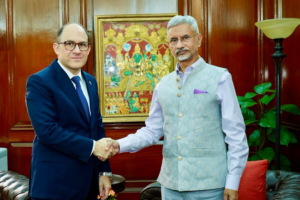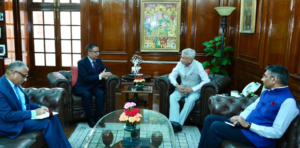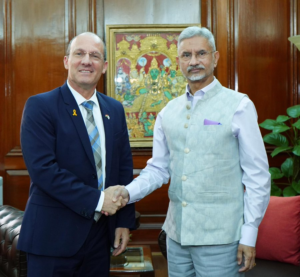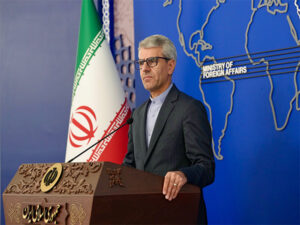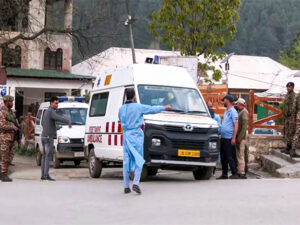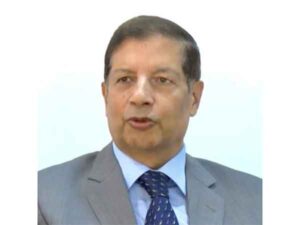Musharraf, chief architect of 1999 Kargil war, leaves behind contentious legacy
Islamabad, Feb 5 (PTI) Pervez Musharraf, the former military dictator of Pakistan, leaves behind a contentious legacy as being the chief architect of the 1999 Kargil war, who later as the President of the country, realised that relations with India were paramount for lasting peace and stability in the region.
Musharraf, 79, who lived in self-imposed exile in the UAE to avoid criminal charges against him in Pakistan, died after a prolonged illness at the American Hospital in Dubai.
Musharraf, a four-star general of the Pakistan Army, seized power after a bloodless military coup in 1999.
As the chief of the Pakistan Army, Musharraf planned and executed the Kargil war during the summer of 1999 by sending Pakistani intruders into India.
However, it turned out to be a gargantuan military failure for him as India pushed back the Pakistanis and defeated them after the three-month-long war.
Musharraf was appointed Pakistan Army chief in October 1998, and in less than a year brought Pakistan and India to the verge of a nuclear showdown.
Musharraf has always defended the Kargil war, but his detractors branded it as misadventure’.
The Kargil had regional and international ramifications, as it took place months after then Prime Minister Nawaz Sharif signed a historic peace accord with his Indian counterpart Atal Bihari Vajpayee in Lahore.
Domestically, it divided the nation with Sharif alleging that he was kept in the dark about the conflict, deepening the mistrust between the civil government and the powerful military.
Internationally, it isolated Pakistan even further.
Musharraf said it was in dealing with Kargil that Sharif exposed his mediocrity and set himself on a collision course with the Army and him.
After his misadventure in Kargil, Musharraf deposed the then Prime Minister Sharif in a bloodless coup in 1999 and ruled Pakistan from 1999 to 2008 in various positions — first as the chief executive of Pakistan and later as the President.
In July 2001, as the Pakistan President, Musharraf embarked on a high-profile visit to India and held talks with the then Prime Minister Vajpayee to improve ties between the two nuclear-armed nations.
He resigned in 2008 after facing the threat of impeachment.
In November 2007, he declared a state of emergency, suspended Pakistan’s constitution, replaced the chief judge and blacked out independent TV outlets.
In 2007, Musharraf declared a state of emergency, suspended Pakistan’s constitution, replaced the country’s chief justice and blacked out independent TV outlets.
He defended his controversial actions, saying they were needed to stabilise the country and to fight rising Islamist extremism.
Under pressure from the West, Musharraf later lifted the state of emergency and called elections, held in February 2008, in which his party was routed.
He was embroiled in a number of court cases following his loss of power, including accusations of failing to provide adequate security for former prime minister Benazir Bhutto, whose assassination during an election rally in 2007 shocked the country and the world.
The top general’s career ended in disgrace when he was sentenced to death in absentia for treason in 2019.
Though that sentencing was later reversed by a court, he never returned to the country.
Now, his body is expected to be brought back to Pakistan on Monday, according to Pakistani media reports.

